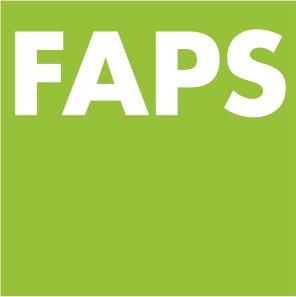Inhalt:
- Konzepte und Erfolgsfaktoren von Ganzheitlichen Produktionssystemen
- Produktionsorganisation im Wandel der Zeit
- Das Lean Production Prinzip (Toyota-Produktionssystem)
- Die 7 Arten der Verschwendung (Muda) in der Lean Production
- Visuelles Management als Steuerungs- und Führungsinstrument
- Bedarfsglättung als Grundlage für stabile Prozesse
- Prozesssynchronisation als Grundlage für Kapazitätsauslastung
- Kanban zur autonomen Materialsteuerung nach dem Pull-Prinzip
- Empowerment und Gruppenarbeit
- Lean Automation – „Autonomation“
- Fehlersicheres Arbeiten durch Poka Yoke
- Total Productive Maintenance
- Wertstromanalyse und Wertstromdesign
- Arbeitsplatzoptimierung (schlanke Fertigungszellen, U-Shape, Cardboard Engineering)
- OEE-Analysen zur Nutzungsgradsteigerung
- Schnellrüsten (SMED)
- Implementierung und Management des kontinuierlichen Verbesserungsprozesses (KVP, Kaizen)
- Überblick über Qualitätsmanagementsysteme (z.B. Six Sigma, TQM, EFQM, ISO9000/TS16949) und Analysewerkzeuge zur Prozessanalyse und -verbesserung (DMAIC, Taguchi, Ishikawa)
- Verschwendung im administrativen Bereich
- Spezifische Ausgestaltungen des TPS (z.B. für die flexible Kleinserienfertigung) und angepasste Implementierung ausgewählter internationaler Konzerne
Lernziele und Kompetenzen:
Nach erfolgreichem Besuch der Lehrveranstaltung sollen die Studenten in der Lage sein:
- Die Bedeutung Ganzheitlicher Produktionssysteme zu verstehen
- Lean Prinzipien in ihrem Kontext zu verstehen und zu beurteilen
- die dazu erforderlichen Methoden und Werkzeuge zu bewerten, auszuwählen und zu optimieren
- einfache Projekte zur Optimierung von Produktion und Logistik anhand des Gelernten im Team durchführen zu können
Organisatorisches:
Unterrichtssprache: Deutsch, Englisch
Voraussetzung: Kenntnisse aus Produktionstechnik 1+2, Betriebswirtschaft für Ingenieure
Online Course via the Bavarian Virtual University
4 SWS / 5 ECTS
Abstract:
Participants of this course get an overview about the tasks of a manufacturing manager with the
background of an international acting company.
- Motivation, philosophy and targets
- Methods und tools
- Experiences from industrial praxis
- Overview of the current situation of production systems of global acting companies
Content of the lecture units:
- Historical derivation, definition and fundamental terms of traditional and integrated production systems (Taylorism and its realization by Henry Ford); critical analysis of the classic methods division of responsibilities/work; Lean Production as solution approach of the mentioned problems;
- Description of elemental pillars of integrated production systems (continuous improvement process; Total Quality Management; value stream method; flow principle, role of the employees in the context of Lean Management)
- Methods und tools of the continuous improvement process: Ishikawa-diagram Pareto-Analysis, A3-report, 5-W
- Process-oriented production: differentiation to technology orientated production; description of the central elements of flow orientated production: Kanban, Just in Time, One Piece Flow, Heijunka
- Global production networks in the context of Supply Chain Management: fundamentals of Supply Chain Management, supply chain structures, supply chain strategies
- Fundamentals, elements and tools of Total Quality Managements (TQM): client orientation in the background of globalization, staff retention und assistance, risks of the implementation of TQM, Overall Equipment Efficiency (OEE) as a measuring instrument
- Jidoka and Low Cost Automation: explanation of the Jidoka-principle and the associated tools (Poka Yoke, Andon-schemes), description of the Low Cost Automation (LCA) -philosophy (5-level principle); guidelines and checklists for the introduction of LCA-systems
- Total Productive Maintenance: Descriptions of seven steps for the realization of TPM, overview of tools of TPM: Makigami, value stream method, etc.; transfer of the TPM- principle into praxis
- Material- und energy efficiency: measuring methods for the determination of consumptions; strategies for reduce wastage; methods for the realization of energy saving potentials in praxis; transfer of the lean idea to the energy value stream
- Transfer of the lean idea to the provision of information und its distribution, CAD/CAM-process PLM, ERP
- Lean Development: Introduction in the product development according to the lean principle; Methods and tools for the support of the product development, instruments for result control measurement
- Lean Administration: transfer of the lean methods on administrative and management processes; identification of administrational processes and their corresponding parts on wastage.
- Repetition of the contents and preparation for the exam.
Online course elements:
- Lectures for download (English) and additional Videos
- Online discussion in a forum (English and German)
- Telecom and email contact to the responsible supervisor of each lecture (English and German)
- Interactive online portal for practice (English and German)
- Literature list for additional information via download (English)
Requirements for examination:
- Fundamentals in production engineering and economy are recommended.
- An examination can take place simultaneously at all requesting universities. If it is requested. It can take place at foreign partner universities too, if there are students from partaking universities.
Learning and qualification target:
With the graduation of integrated production systems, you should be able to:
- Conceive the major characteristics of the lean idea
- Know and interiorize the meaning of the existing lean-principles
- Know the principle and the targets of the continuous improvement process, and apply the most important methods and technics
- Understand the difference between a technology and process orientated production
- Know the reasons, possible structures and main principles of a global production and the corresponding supply chains
- Conceive the principle and the targets of the TQM-approach and be able to apply its most important methods and techniques
- Understand the principle of Jidoka and the resulting potentials
- Apply the concept of TPM and its eight pillars
- Quantify the route an influence factors of material and energy flows in producing companies
- Understand the meaning of information in production processes
- Know the fundamentals and essentials of lean development und lean administration
Tags: Production engineering, integrated productions systems, management
Suitable for: Master students of all technical study paths
Competent examination office: Examination office of the home university of the students
Authorized aids during the examination: Non-programmable calculator
Formal requirements for the participation in the examination: All three case studies have to be passed and a registration via the vhb has to be made.
